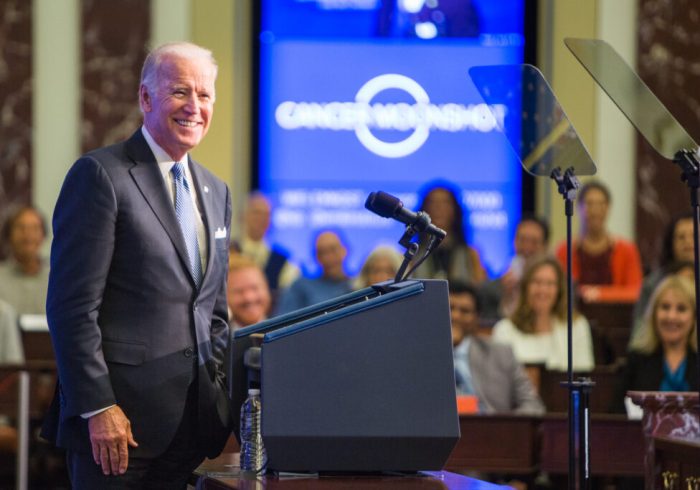The Massachusetts Gaming Commission (MGC) held an open meeting on May 21, 2024, led by interim chair Jordan Maynard with the primary purpose of discussing why licensed sports wagering operators in the Commonwealth limit access to some patrons.
This discussion was driven by reports from consumers and media alleging unfair betting limits, which could potentially drive honest players to the illegal market. The MGC aimed to gather perspectives from operators, patrons, and responsible gaming communities to initiate a dialogue and understand the issue comprehensively.
Key Points Discussed
- Initiation and Purpose:
- The meeting aimed to understand the reasons behind patron limitations by licensed sports wagering operators and to address concerns about unfair practices potentially driving players to illegal markets.
- Operator Participation:
- Legal constraints required the conversation to remain public.
- Ten major operators (including Fanatics, Fanduel Drafkings, Caesars, and ESPN Bet ) initially intended to join the discussion, but instead requested an executive session for discussing sensitive information. DraftKings stated that “any meaningful discussion on wagering limits would necessarily involve the disclosure of DraftKings’ confidential risk management practices and other commercially sensitive business information”.
- Expert Perspectives:
- Experts discussed the reasons for limiting patrons, focusing on transparency and responsible gaming.
- There was a consensus on the need for more data and standardized metrics to understand the scope and reasons for limitations.
- Transparency and Communication:
- Concerns were raised about the lack of communication and transparency from operators when limiting or banning patrons, particularly those in VIP programs or winning significant amounts.
- Suggestions were made for operators to share data on the percentage of limited or banned patrons to provide clarity and context.
- Responsible Gaming:
- Discussions emphasized the importance of distinguishing between responsible gambling practices and unfair patron limitations.
- The need for standardized metrics to track and communicate with players experiencing harm or at risk of gambling-related harms was highlighted.
- International Comparisons:
- Examples from jurisdictions like Australia and the UK were discussed to provide context on how other regions handle responsible gambling and patron limitations.
- New Jersey Model:
- The New Jersey model was discussed as an example of addressing problem gambling without imposing direct limits on patrons but rather placing obligations on licensees when certain thresholds are met.
- Impact on Business Models:
- Concerns were expressed about the potential impact on operators’ business models if they were forced to accept all bets without limits.
- The high barriers to entry, licensing fees, and taxes in Massachusetts were noted as factors affecting the presence of operators who don’t impose limits.
Takeaways
- Need for Data and Standardization:
- There is a critical need for data collection and standardized metrics to better understand and manage patron limitations.
- Transparency and Communication:
- Operators should improve communication with patrons regarding the reasons for limitations to ensure transparency and fairness.
- Balancing Responsible Gambling and Fair Access:
- Efforts must be made to balance responsible gambling practices with fair access to betting opportunities for all patrons.
- Learning from Other Jurisdictions:
- Massachusetts can learn from international practices to improve its own regulatory framework concerning sports wagering limitations.
- Potential Industry-Wide Impacts:
- Any changes in how limitations are applied could have significant impacts on operators and the overall market dynamics.
The meeting concluded with no new regulations proposed but with a clear emphasis on the need for ongoing dialogue, data-driven decisions, and enhanced transparency in the industry.
The Massachusetts Gaming Commission has come under scrutiny in recent months for its unfair betting limits imposed on certain individuals. This issue has sparked a heated debate among both industry professionals and the general public, with many questioning the commission’s motives and reasoning behind these restrictions.
The controversy began when several high-stakes gamblers reported being limited to placing only small bets at Massachusetts casinos. These individuals, who are known for their large wagers and high-risk gambling habits, were shocked to find that they were being restricted in their betting options. Many of them have expressed frustration and anger at the commission’s decision, claiming that it is unfair and discriminatory.
The Massachusetts Gaming Commission has defended its actions by stating that the betting limits are in place to protect both the players and the casinos themselves. By imposing these restrictions, the commission argues that it is able to prevent problem gambling behavior and ensure that individuals do not wager more than they can afford to lose. Additionally, the commission claims that the limits are necessary to maintain the integrity of the gaming industry and prevent money laundering and other illegal activities.
However, critics of the commission’s policies argue that these restrictions are arbitrary and unjust. They point out that individuals should have the right to gamble as they please, as long as they are of legal age and are not causing harm to themselves or others. By limiting betting options, the commission is effectively infringing on individuals’ personal freedoms and choices.
Furthermore, some have raised concerns about the potential economic impact of these restrictions. High-stakes gamblers often contribute a significant amount of revenue to casinos, and by limiting their betting options, the commission may be hurting the overall profitability of the gaming industry in Massachusetts.
In response to the backlash, the Massachusetts Gaming Commission has stated that it is open to reviewing its policies and making changes if necessary. The commission has also emphasized that it is committed to promoting responsible gambling practices and ensuring a safe and fair gaming environment for all individuals.
Overall, the debate over unfair betting limits held by the Massachusetts Gaming Commission is far from over. As stakeholders continue to voice their opinions and concerns, it remains to be seen how the commission will address this issue moving forward.





